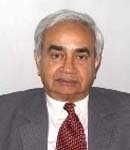Obama and Nuclear Disarmament:
Why Berlin is not Prague-II
24 Jun, 2013 · 4006
PR Chari discusses the agenda for nuclear disarmament
Why President Obama chose Europe to make his major policy statements on nuclear disarmament is easily explicable. Europe was the most heavily nuclear armed region during the Cold War, with the United States and the Soviet Union confronting each other and heading their NATO and Warsaw Pact military alliances respectively. Reams were written on the likely invasion of Europe by the Warsaw Pact, and to defending the most probable invasion route through the Fulda Gap. Significantly, NATO doctrine required its crossing the nuclear threshold at the earliest to stem a Warsaw Pact offensive.
The Germans worried that they would be vaporized in the process of being saved. But, here’s the anomaly. West Germany also craved the security of US nuclear weapons to protect it from the Soviet Union. In fact, it went along with the NATO strategy to premise the defense of Europe on the first use of nuclear weapons. Here’s the second anomaly. There was no guarantee that the first use of nuclear weapons would not invite a nuclear counter-blow, and that the nuclear conflict would not escalate. How this conflict might be terminated remained a mystery. And, a third anomaly. Between nuclear armed adversaries possessing survivable nuclear forces and credible retaliatory capabilities the initiation of any nuclear conflict ran the unavoidable risk of mutual annihilation.
In the light of these anomalies, the conviction strengthened that there is no alternative to eliminating nuclear weapons. Calls to remove nuclear weapons from hair trigger alert, reduction of nuclear arsenals by retiring deployed nuclear weapons, and striving for “global zero” have engaged the attention of arms control lobbies and nuclear disarmament activists across the world. In this milieu, President Obama’s pledge in Prague (April 2009) to seek a world without nuclear weapons was electrifying. Little heed was paid to his accompanying caveat: “I’m not naive. This goal will not be reached quickly -- perhaps not in my lifetime. It will take patience and persistence. “
There was much more in his Prague speech. He promised to negotiate a new Strategic Arms Reduction Treaty with Russia (since achieved); seek ratification of the Comprehensive Test Ban Treaty by the U.S. Senate (not achieved); pursue a new treaty to verifiably end the production of fissile materials for nuclear weapons (still under negotiation in Geneva); strengthen the Nuclear Non-Proliferation Treaty by seeking its central bargain viz. countries with nuclear weapons will move towards disarmament, countries without nuclear weapons will not acquire them, and all countries can access peaceful nuclear energy (North Korea and Iran continue to challenge the non-proliferation regime); and, finally, build a framework for civil nuclear cooperation, so that countries could access peaceful power without increasing proliferation risks (still a work in progress) .
Onwards to Berlin (June 2013). What has been achieved in the last four years towards achieving these goals? Obama reiterated his commitment to a world without nuclear weapons, linking it to peace with justice “ no matter how distant that dream may be.” Apropos, the New START Treaty envisioned the reduction of American and Russian deployed strategic nuclear weapons to 1550 on 700 delivery vehicles. These numbers would be reduced by another 500 or roughly one-third. Additionally, Obama promised to “work with our NATO allies to seek bold reductions in U.S. and Russian tactical weapons in Europe. And we can forge a new international framework for peaceful nuclear power, and reject the nuclear weaponization that North Korea and Iran may be seeking. “Towards this end the US would host a summit in 2016 to review nuclear disarmament efforts.
So, why is Berlin not Prague II? Berlin’s obvious success is Obama’s pledge to bring down the deployed strategic nuclear weapons from the new START total of 1550 to around 1000. But, his other pledges in Prague remain unfulfilled. The Republicans are determined to thwart Obama’s hopes to gain Senate ratification for the Comprehensive Nuclear Test Ban Treaty. Pakistan is determined to frustrate any efforts to begin negotiations on a treaty to halt the production of fissile materials for military purposes. Most disconcertingly, however, President Obama’s guidance to the Pentagon on “nuclear employment strategy” shortly after his Berlin statement has reaffirmed a commitment to a Cold War posture that is premised on counterforce targeting, retaining the strategic triad of nuclear forces, and forward-deploying non-strategic nuclear weapons in Europe.
Moreover, old issues are besieging the agenda like the deployment of tactical nuclear warheads that became obsolete after the end of the Cold War, during which the first-use-no-first-use debate had proceeded. Only bureaucratic inertia, can explain their continued deployment. And new issues have arisen that must be included in the debate on eliminating nuclear weapons like the issue of ballistic missile defenses, availability of high precision conventional weapons that could effect a first strike, and space based weapons.
Many new issues have thus arisen to crowd the agenda to aspire for nuclear disarmament, and it is no longer a question of merely reducing the numbers of strategic nuclear weapons where attention has stayed riveted since Prague.


